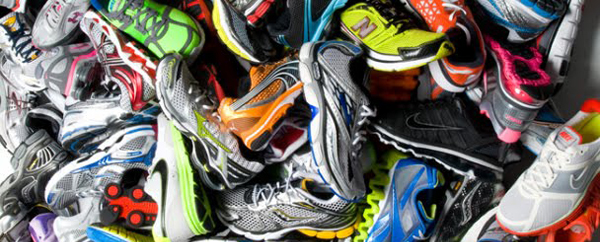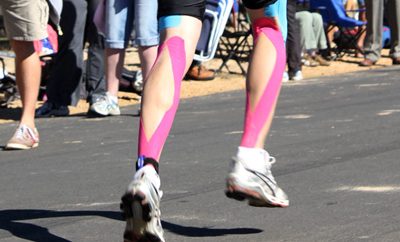Running Shoes: How Do I Choose?

“I need to buy some proper running shoes for the first time. I’ve had a hip problem and my physio says go for something minimalist as I should be running on my forefoot but the running shop said I need ‘stability’ shoes for my pronation. What should I go for?“
– Gary B.
Matt answers…
Many thanks for the email, Gary. The confusion one faces when looking for a suitable pair of running shoes is one shared by many runners, particularly those who are relatively new to running and have less experience of what feels right. The good news is, I can make everyone’s life a whole lot easier with just 5 words: Go with what feels comfortable.
Though many shoe shops still use the amount of ‘pronation’ to prescribe shoes, there isn’t actually any science behind it. We are all too different to allow the creation of a norm or a categorisation system that puts us into three groups (high arch, normal arch, low arch). In fact, research shows that selecting a shoe based on how much your arch drops reduces injury no more than choosing a shoe at random.
We know that the different styles of shoes out there do help runners in different ways, we just don’t know how. One piece of research we do have shows a link between comfort and injury reduction, so until we have a better model that seems to be the best method.
There are lots of variables that may make one style of shoe more comfortable than another: the drop (difference in heel height to toe height), the width, amount of cushioning, amount of stiffness in the midsole. Try on some different pairs, go for a run round the block in each, see what feels most comfortable. Good running shops should offer you 30 days to return shoes if you are not happy so that gives you lots of time to see what feels best for you.
I am not aware of your physio’s intention for recommending you a minimalistic shoe so I cannot comment (it may be part of a rehab attempt to redirect what part of your legs are taking the strain during running). I imagine however they would agree that if the shoe does not feel comfortable, it’s not the right shoe.
Just bear in mind that no one style of shoe or running suits everybody. We are all too physiologically different. As individuals we need to listen to our own body and see what suits us. I hope this helps!
Do you have any good/bad experiences of being recommended/sold running shoes? Whether you are a therapist, coach or runner we would love to hear from you in comments section below!
Related Posts
Warm Up: Should I Stretch?
“I always stretch before my runs but a friend told me the other day that I shouldn’t bother as it can make you run slower? Should I stop or could this increase risk of injury? My calves are always tight so I am worried.”
Plantar Fasciitis: What Can I Do?
“I’ve started getting a dull achy pain in the sole of my foot and back towards my heel. It doesn’t hurt all the time but bothers me when I run and walk sometimes. I know that I have a tight calf in that leg and have to wear high heels for work. What should I do?”
Brace or Kinesio Tape: Which?
“I’m having knee problems at the moment and have had to stop running. My physio has given me a knee brace to wear, but my trainer says I shouldn’t wear it and instead use kinesio tape. I’m really confused.”






0 Comments
Trackbacks/Pingbacks